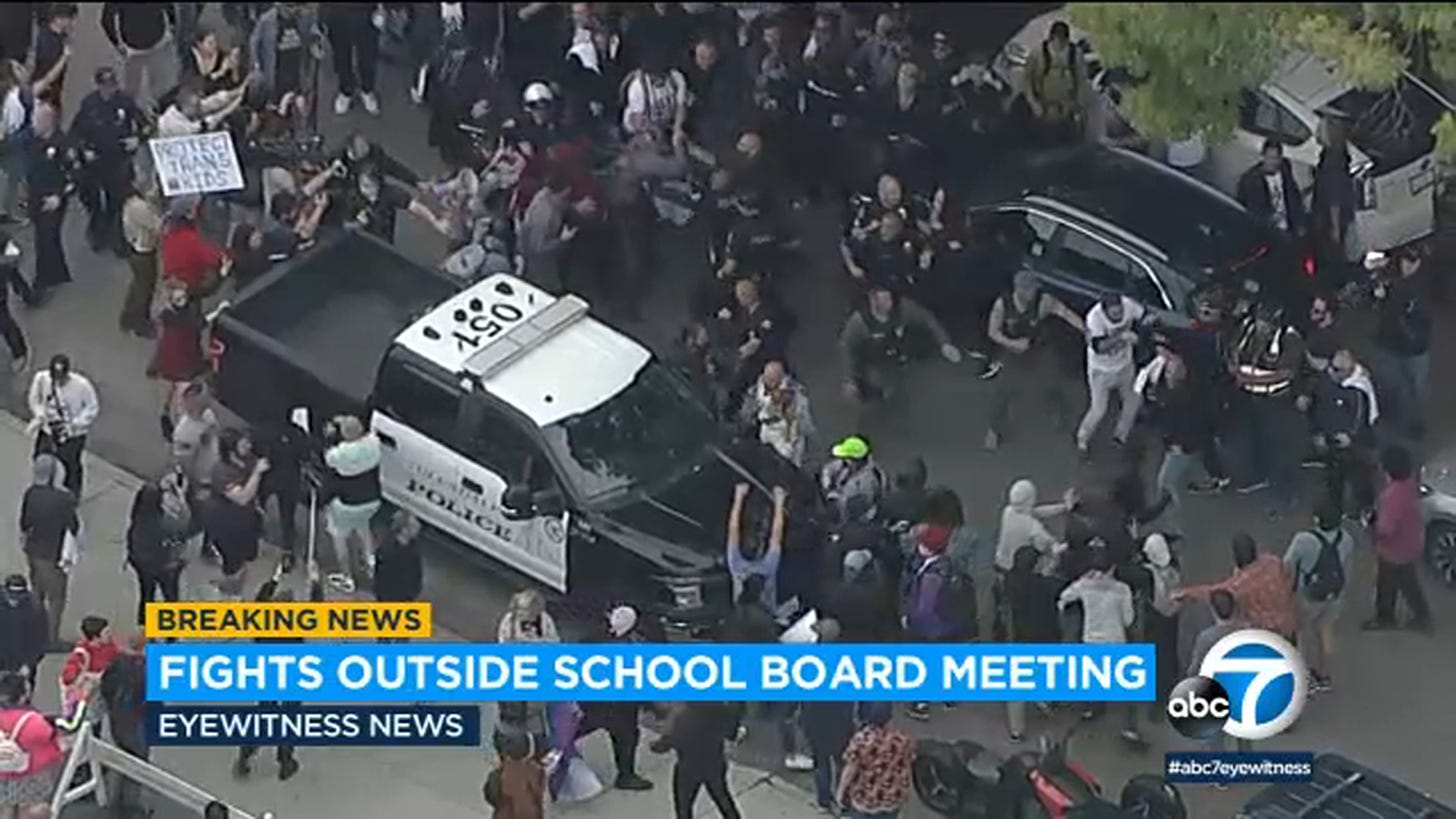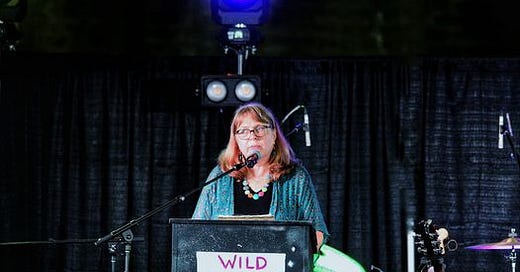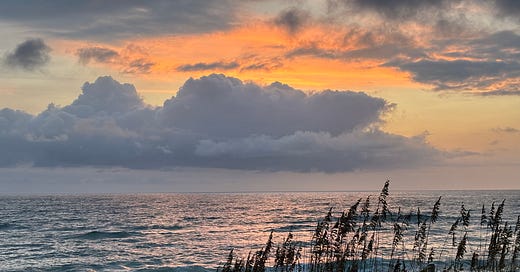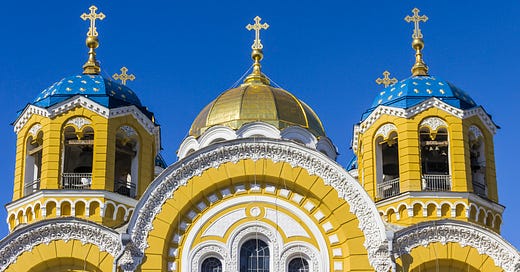

Discover more from The Cottage
On June 1, a Twitter follower tagged me in a post. He’d recently read my book Christianity After Religion, in which I suggested that the decline of religion in the United States might not really be an erosion of faith but was instead a transformation of faith akin to earlier Great Awakenings in American history.
The old religious world is failing, but the Spirit is stirring anew.
— Christianity After Religion
He enjoyed the book. However, he noted that it was published in 2012 — eleven years ago. He asked if the publisher planned a revision. How might a new edition change? He was particularly interested in how I understood the rise of Trumpism.
In 2020, I suggested to my publisher that we do an updated version. They took a pass. I’ve thought about the Twitter question for a while now — and haven’t really been able to get it out of mind. I answered his tweet and said, “Trumpism is hyper-backlash” over and against the creation-focused, democratic, and pluralistic Great Awakening that I described in the book’s pages.
Trumpism is hyper-backlash.

Yesterday, the Southern Poverty Law Center issued its yearly “hate and extremism” report. Here’s their summary — and it is about backlash:
In 2022, the hard-right movement succeeded in burrowing deeper into people’s lives in visible and material ways, even if it did not have widespread electoral success. Its fingerprints are everywhere: people’s homes, schools, doctors’ offices, libraries, bars, restaurants, churches and other community spaces. The fear and pain experienced by Black, brown, and LGBTQ communities went far beyond any individual incident, deeply disrupting their ability to participate in an inclusive democracy. . .
While voters rejected many of the most extreme candidates in the 2022 midterm elections, the country remains in a reactionary political moment — explained, in part, as backlash to progressive successes both real and perceived. The right is increasingly expressing fear of a so-called “great replacement” of white people and depicting demands for LGBTQ equity as dangerously radical in the wake of visible progressive mobilizations, including the racial justice protests of 2020 for Black lives and a growing trans rights movement. Backlash is a political strategy employed by the right — one that, the historian Lawrence Glickman has written, shifts the “focus from those denied equity under the law and demanding justice to those who [imagine] threat or inconvenience in the possibility of social change.”
I wish we could just remind people to love their neighbors. It would be wonderful if a call to love would solve the problems listed in the SPLC report.
Love is, of course, an answer. And while most people of faith can agree on the command to love our neighbors, we need to face the reality of this moment.
What is happening among us — the transnational struggles with democracy and attacks on human rights — is far more than a failure to love our neighbors. Most of today’s nationalist and anti-democratic movements aren’t about disliking others; they aren’t about “hate” at some emotional level. They aren’t even about feelings of fear.
They are, instead, a recognizable political reactionary agenda to deny certain groups their rights and reestablish power among those of particular classes, races, and/or religions.
And while I appreciate the power of preaching and teaching, not even the most compelling sermons about love — or shaming others about loving the neighbor — are going to change what are calculated strategies to deny the humanity, safety, and flourishing of our fellow citizens.
Readers sometimes ask me if I still think there’s a great awakening. I remind questioners of an important claim in the book: Awakenings can be stopped by backlash movements. Awakenings are not inevitable.
Christianity After Religion borrowed some of its framework from the late William McLoughlin, a noted historian at Brown University. In 1978, McLoughlin’s work Revivals, Awakenings, and Reform suggested that events of the 1960s and 1970s might have constituted a “fourth Great Awakening” in the United States. But he worried that it was incomplete — and wondered if it would be met by a backlash.
“There almost always arises a nativist or traditionalism movement within the culture that is an attempt by those with rigid personalities or with much at stake in the older order,” he wrote, to organize a backlash to “return to the ‘old-time religion,’ ‘the ways of our fathers,’ and ‘respect for the flag.’” McLoughlin insisted that backlash movements always scapegoat others (especially immigrants and those at the margins of society), and they work to maintain high levels of “chronic stress” among their adherents. Fear doesn’t start backlash political movements — fear fuels them. It was possible to turn history backward, Loughlin said, especially if some group re-asserts the authority of an “absolutist, sin-hating, death-dealing” God as its motivation. Theocratic political movements are nothing new, and they have succeeded in the past.
Love must be our answer — loving God, our neighbors, and creation. But love is far more than good feelings or emotions. Love must be organized, active, and committed to the full dignity and worth of everyone. It isn’t enough to preach against hate. Hate is infiltrating our everyday lives — like the poisoned air filtering down from northern wildfires — hardly visible until the air is so thick with toxins that no one will be able to breathe.
You can’t get rid of the smoke. You have to put out the fire.
INSPRIATION
When I wrote Christianity After Religion, Wendell Berry gave me permission to use his poem, “A Vision,” to describe the Awakening I described in the book.
If we will have the wisdom to survive,
to stand like slow-growing trees
on a ruined place, renewing, enriching it,
if we will make our seasons welcome here,
asking not too much of earth or heaven,
then a long time after we are dead
the lives our lives prepare will live
there, their houses strongly placed
upon the valley sides, fields and gardens
rich in the windows. The river will run
clear, as we will never know it,
and over it, birdsong like a canopy.
On the levels of the hills will be
green meadows, stock bells in noon shade.
On the steeps where greed and ignorance cut down
the old forest, an old forest will stand,
its rich leaf-fall drifting on its roots.
The veins of forgotten springs will have opened.
Families will be singing in the fields.
In their voices they will hear a music
risen out of the ground. They will take
nothing from the ground they will not return,
whatever the grief at parting. Memory,
native to this valley, will spread over it
like a grove, and memory will grow
into legend, legend into song, song
into sacrament. The abundance of this place,
the songs of its people and its birds,
will be health and wisdom and indwelling
light. This is no paradisal dream.
Its hardship is its possibility.
— Wendell Berry, “A Vision”
UPCOMING AT THE COTTAGE
(Paid Subscriber Events)
RUINING DINNER IS BACK!
Tripp Fuller and I will be live-casting our religion and politics podcast on June 9 at 11AM EASTERN (so we’ll really be ruining your lunch this week). ALL paid subscribers at The Cottage will receive a link for the livestream on THURSDAY night. Look out in your email for it!
We’ll send out a recording to our paid subscribers after the livestream. So, if you can’t listen live, you can catch us later.
THIRD THURSDAY AT THE COTTAGE
Paul Raushenbush, President of the Interfaith Alliance, joins me on June 15 at 3PM EASTERN for our monthly live gathering. Paul is the great-grandson of both theologian Walter Rauschenbusch and Supreme Court Justice Louis Brandeis. Paul, an ordained Baptist minister, is married to Brad and is dad to two beautiful sons. We’ll be talking about LGBT issues and social justice, Pride Month, and the super majority on the Supreme Court.
Links will be sent out about two hours before the conversation on June 15.















My dilemma is how to actively oppose their hate speech, discriminatory laws, and violence without hating them in return and adding fuel to an already raging fire.
I've been thinking a lot about resisting evil, both in ourselves and on a social level. Not just not hating, but how to also resist being hated. I keep coming back to the idea of overcoming evil with good. There's something there to dig out. I think the hate we are seeing isn't hate for the sake of hate, as you pointed out. It's about a grasp for power and privilege that is slipping away. Maybe the fact that it's slipping is a sigh that good is overcoming? Maybe not. It's a real difficulty though to love our neighbors as they try to oppress people. The whole thing is a mess.